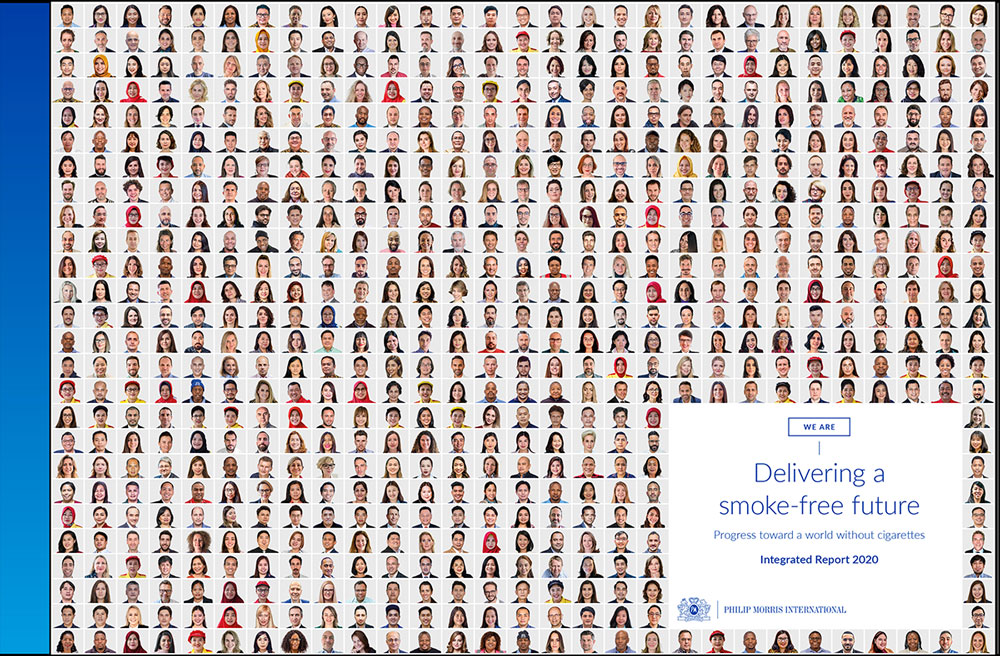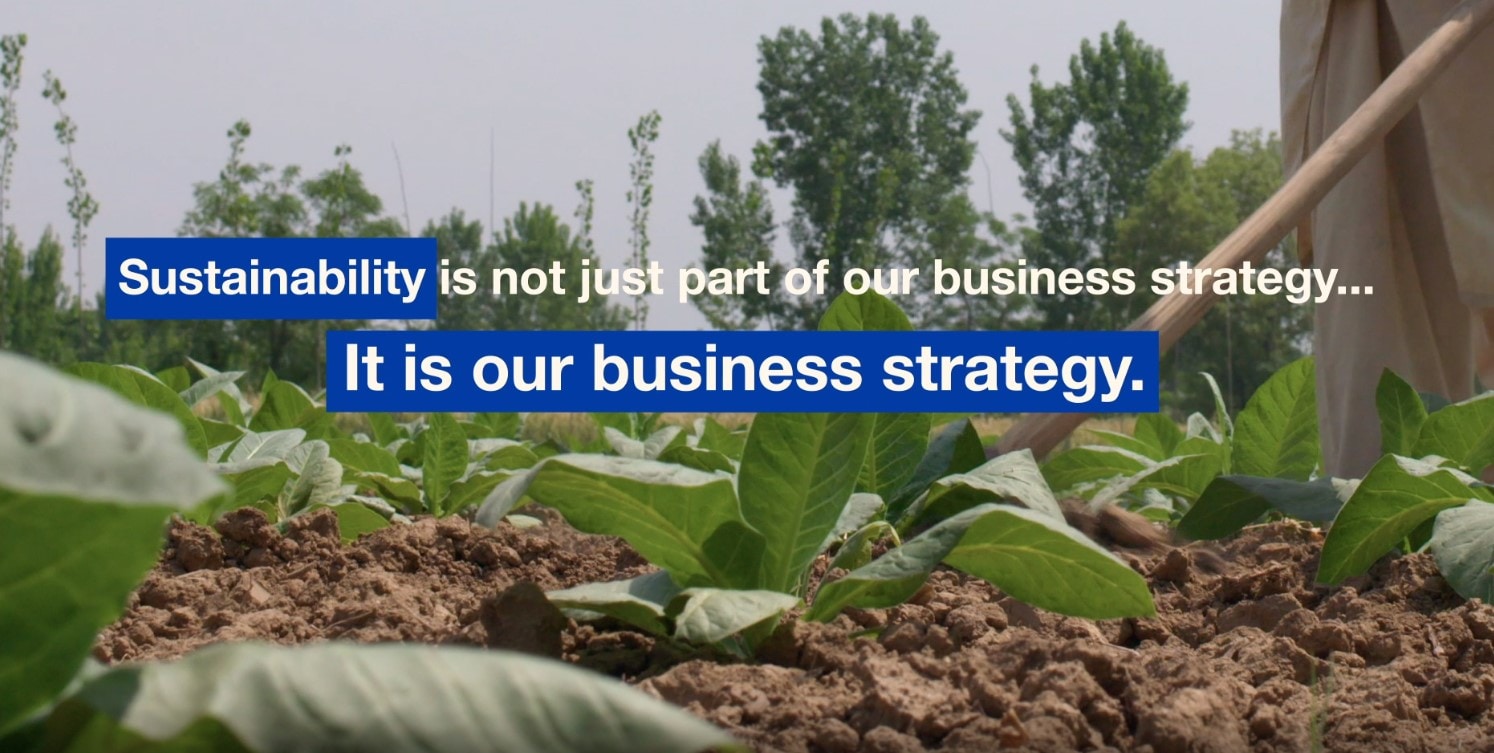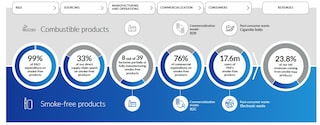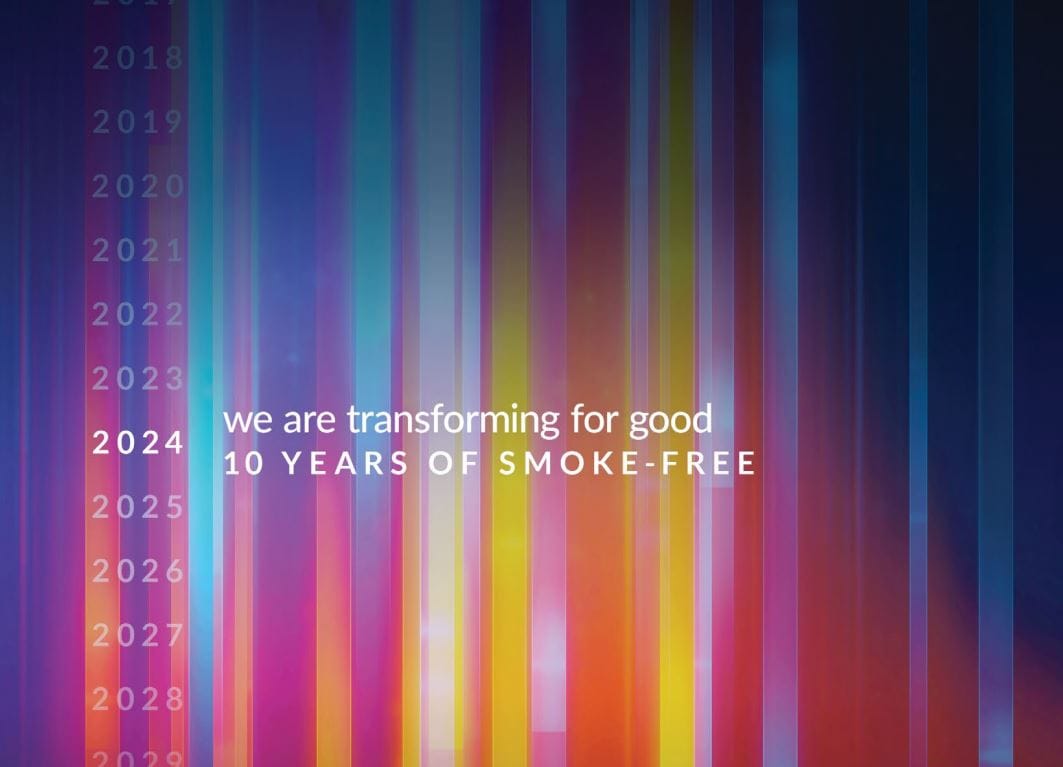PMI’s 2020 Integrated Report demonstrates the progress we’re making toward delivering a smoke-free future and improving our environmental, social, and governance (ESG) performance.
The report comprehensively charts how we’re achieving our goal of replacing cigarettes with better alternatives, including the following ambitions for 2025:
- To have switched more than 40 million adult smokers to our smoke-free products, with half from non-OECD countries.
- For smoke-free products to account for more than 50 percent of PMI’s total net revenues.
- For our smoke-free products to be available in 100 markets.
- For at least USD 1 billion in annual net revenues to come from “beyond nicotine” products.
Advocating for change and positive values
Commenting on the report’s release, Jacek Olczak, Chief Executive Officer, said: “I present this report with pride in what we have already achieved in just five years, such as smoke-free products accounting for nearly one-quarter of our total net revenues in 2020, from essentially zero in 2015.
“I also have a deep recognition of the immense work ahead. Our new ambitious goals signal our confidence in our ability to monumentally change our company’s long-term future.
“PMI is committed to serving as an agent of change and advocate of positive values. Innovation and inclusiveness are key to solving our challenges, whether related to tobacco harm reduction, environmental impact, or social impact.
“We aim to create a sustainable future that benefits our company, shareholders, consumers, and society.”
Measuring our impact
Our Integrated Report 2020 demonstrates how our company’s strategy, governance, and performance create value.
We report progress on various ESG areas to demonstrate how we’re delivering impact, including on our 2025 Roadmap—a set of forward-focused targets pertaining to all Tier 1 topics from PMI’s sustainability materiality assessment.
The report highlights PMI’s most material sustainability topics, including the health impacts of our products—an aspect often not captured by external ESG assessments.
And it describes our efforts in researching, developing, and commercializing scientifically substantiated better alternatives to continued smoking for those adults who would otherwise continue to smoke.
It also includes a new section on our business transformation—which extends beyond solely our smoke-free objectives—and an update on our bespoke Business Transformation Metrics, introduced in 2016.
These metrics enable stakeholders to transparently track the pace and scale of PMI’s transformation.
ESG topics are business topics
For us, sustainability strategy is corporate strategy. ESG topics are business topics.
Reflecting this commitment to sustainability, the global sustainability team is now part of the Finance function, reporting directly to the Chief Financial Officer, Emmanuel Babeau. In addition, executive compensation is now more clearly linked to ESG performance, complementing the strong product transformation incentives already in place.
“Sustainability stands at the core of PMI’s transformation,” said Mr. Babeau, “and drives our development of strong ESG programs to mitigate the risks associated with our value chain while spurring innovation and growth to secure our success over the long term.
“It is our firm belief that sustainability and corporate performance do not follow separate paths, and I am proud that we have spent the last year continuing to strengthen our sustainability governance and ensuring that ESG is integrated into decision-making at all levels of our organization.”
Continuing our sustainability efforts in unprecedented times
Our 2020 Integrated Report also dedicates sections to the impact of the COVID-19 pandemic on our employees, business, value chain, and sustainability efforts—and measures how we responded.
“Despite the unprecedented challenges brought on by the global pandemic,” added Chief Sustainability Officer Jennifer Motles, “we have not deviated from our efforts to show care, support those in our orbit, and continue our quest to become a more sustainable company.”
“As we continue to transform, stakeholder engagement and constructive dialogue remain paramount to this evolution.
“In 2020, multi-stakeholder partnerships were key to the significant progress we made toward addressing many of our priority sustainability topics, ranging from protecting the health and safety of our employees to safeguarding the human rights of those impacted by our business and accelerating efforts to mitigate our impact on climate change throughout our value chain.”
PMI’s smoke-free vision is fueling progress
Despite the adversities of the COVID-19 pandemic, we continued to make progress on our business transformation and our journey toward a smoke-free future:
- As of December 31, 2020, IQOS was available for sale in 64 markets, and an estimated 12.7 million adult users had switched to IQOS and stopped smoking, out of 17.5 million total IQOS users.
- In 2020, PMI invested USD 495 million in R&D expenditures, nearly 100 percent of which was dedicated to smoke-free products.
- PMI’s smoke-free product net revenues accounted for 23.8 percent of total net revenues in 2020, compared with 0.2 percent in 2015.
- PMI’s smoke-free product shipment volume accounted for over 10 percent of total shipment volume in 2020, compared with 0.1 percent in 2015.
Selected ESG performance highlights
Our sustainability efforts also drove significant change:
- In 2020, 48 percent of PMI’s contracted farmers supplying tobacco were earning at least a living income, based on the Anker methodology, which is widely recognized for estimating living income benchmarks worldwide. Despite the challenges of the global pandemic, 100 percent of tobacco farmers and farmworkers in PMI’s supply chain were provided with access to personal protective equipment (PPE).
- We are well on track to achieve our net-zero targets of carbon neutrality in our direct operations (scope 1+2) and across our value chain (scope 1+2+3) in 2050. In 2020, we achieved significant absolute CO2e emissions reductions, including a 26 percent reduction in our direct operations (scope 1+2) and an 18 percent reduction across our value chain (scope 1+2+3). These were partially driven by COVID-19-related impacts but were mainly due to accelerated efforts toward our carbon neutrality goals.
- In August 2020, we launched our e-vapor product IQOS VEEV—our first electronic device equipped with age-verification technology—in New Zealand. We aim to have 100 percent of our smoke-free electronic devices introduced on the market, as of 2023, equipped with age-verification technology.
- PMI introduced a new methodology to measure the prevalence of all types of child labor incidents—to gain greater visibility and increase reporting accuracy—as part of our aim for zero child labor in our tobacco supply chain by 2025.
- To strengthen our diligence framework and proactively identify risks and mitigate potential adverse impacts in our operations and value chain, we conducted human rights impact assessments in two countries—Mozambique and Russia—in 2020 and we are on track to cover our 10 highest-risk markets by 2025.
- In 2020, we achieved our target of having 100 percent of our tobacco purchased at no risk of deforestation of old-growth forest, furthering our efforts to protect biodiversity and prevent the destruction of nature.
- PMI received a “Triple-A” score from CDP for our efforts in combating climate change, protecting forests, and promoting water security, and maintained our position on the A List for Climate Change for the seventh year in a row.
- We continued the rollout of our take-back program for smoke-free electronic devices, called CIRCLE, and achieved an 84 percent recycling rate of IQOS devices returned at CIRCLE hubs (percentage of the weight of each device).
- As of December 2020, 37.2 percent of management positions at PMI (those above a defined grade, encompassing managers, directors, and senior management) were held by women, up from 36.1 percent in 2019. Committed to achieving gender balance at all levels, we are on track to achieve our goal of 40 percent of management positions to be held by women by 2022.
Collaboration is key to a smoke-free future
Our 2020 Integrated Report communicates the progress we’re making to achieve our purpose of delivering a smoke-free future and emphasizes our commitment to sustainability.
We hope that the transparent reporting on our business activities and sustainability performance will encourage the support required to accelerate the pace of change.
This online content about our Integrated Report should be read in conjunction with PMI’s 2020 Integrated Report. The information and data presented here cover the 2020 calendar year or reflect status at December 31, 2020, worldwide, unless otherwise indicated. Where not specified, data come from PMI estimates. Please also refer to 'About this report' on page 3 of the 2020 Integrated Report for more information. Aspirational targets and goals do not constitute financial projections, and achievement of future results is subject to risks, uncertainties and inaccurate assumptions, as outlined in our forward-looking and cautionary statements on page 145. In the 2020 Integrated Report and in related communications, the terms “materiality,” “material,” and similar terms, when used in the context of economic, environmental, and social topics, are defined in the referenced sustainability standards and are not meant to correspond to the concept of materiality under the U.S. securities laws and/or disclosures required by the U.S. Securities and Exchange Commission.








